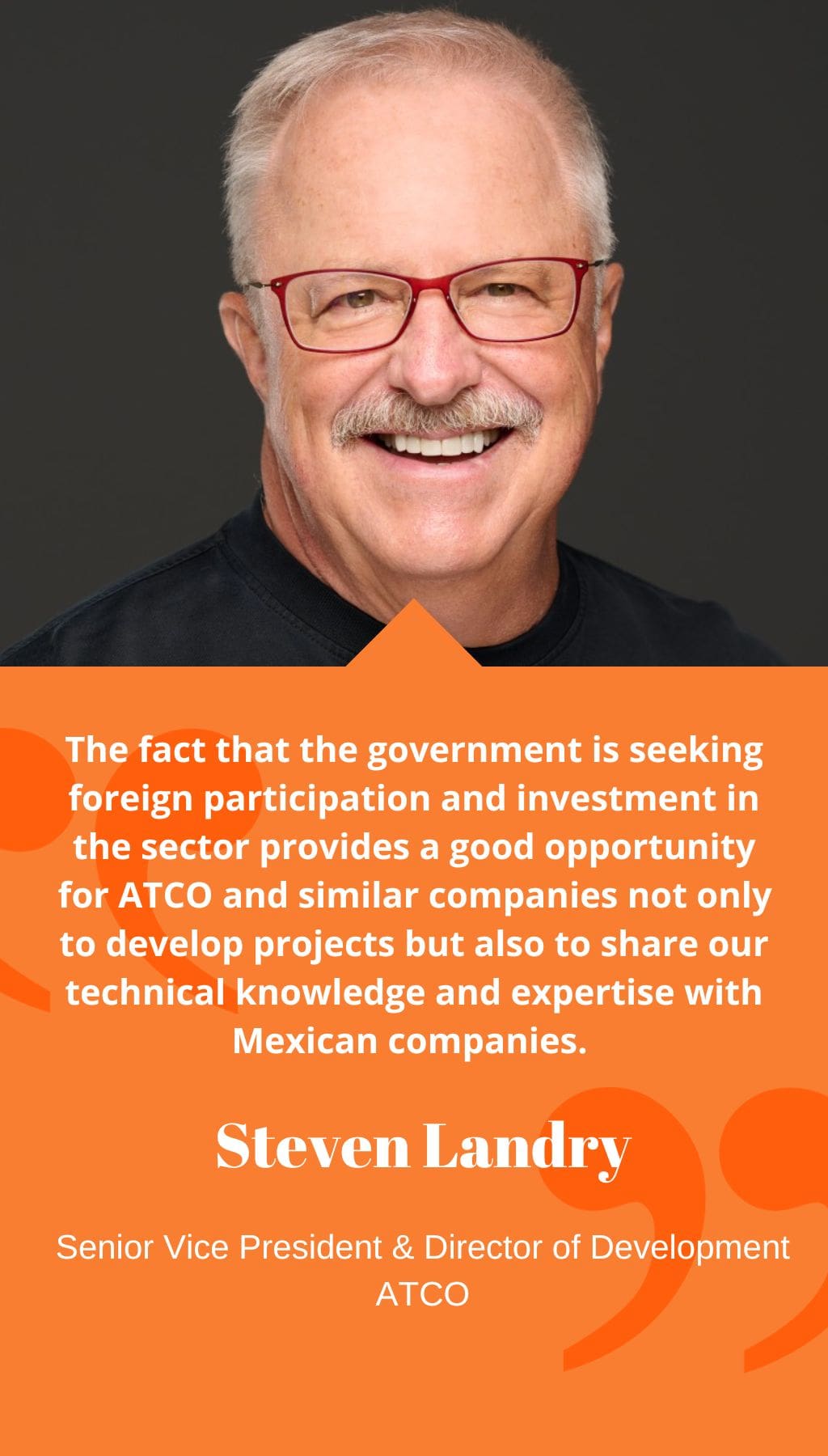
- Mexico | 30 June 2016

How has the contract with the Federal Electricity Commission to construct the Tula Branch pipeline turned out?
The Federal Electricity Commission has a broad focus on providing energy solutions to Mexico, aiming to have natural gas in many more areas of the country than at present. Mexico’s strategy to connect the country with pipelines is very smart, especially with the current favorable gas price. Upon entering the Mexican market, we contacted various Mexican public and private companies to show them our experience in Canada, the UK, and Australia. We decided to bid on the Tula Branch pipeline project not only for its size but also because it represented appropriate learning experience for our first project in Mexico. It is 16 kilometers long and 30 inches in diameter with no compression. Construction is scheduled to finish end of this year.
ATCO was also selected in an $820 million agreement with a Pemex subsidiary, PMX Cogeneration, to develop a 638 MW cogeneration plant in Hidalgo. How does this fit into ATCO’s strategy in Mexico?
ATCO had participated in a Pemex acquisition process previously in 2014, in a different power plant, although very similar. That project was awarded to another company, but Pemex was impressed with ATCO’s capability and considered us a good candidate for their next cogeneration project in Tula. The plant will be used in the development and expansion of Pemex’s refinery in Hidalgo, near our pipeline. We are happy to work with Grupo Hermes as a partner on the cogeneration project, as there are many synergies between our companies. ATCO has a strong technical background and operational experience in this field, and Hermes has a company, Cerray, that builds good boilers, which will be used in the plant.
How does ATCO plan to expand its presence in Mexico?
ATCO began operating in Mexico in June 2014. We decided to open an office in the country to demonstrate to the government and the population that we are committed for the long term. Our goal is to develop the company with Mexican employees and in partnership with other Mexican companies that can leverage our technical and operational experience in other markets. As for partnering with construction companies, we have reached out to a dozen companies that have potential to develop projects with us in various capacities.
President Enrique Peña Nieto plans to install 10,000 kilometers of pipelines and undertake 18 new natural gas transportation projects in the next four years. Can this be achieved, given Mexico’s current lack of pipeline infrastructure?
The construction of the pipeline network has already begun, with several large-diameter pipelines. Whether or not the CFE is able to achieve the goals set by the Mexican government is outside the control of any company, but what ATCO can do is focus on the specific projects that arise in the near future and to which we can bid later.
How has ATCO benefited from Mexican gas and oil reforms?
Energy reforms are a turning point in the Mexican gas and oil industry. The fact that the government is seeking foreign participation and investment in the sector provides a good opportunity for ATCO and similar companies not only to develop projects but also to share our technical knowledge and expertise with Mexican companies. There is certainly an economic gain in the reforms, but ATCO also works to strengthen our relationships with Mexican local communities and develop our reputation sustainably, similar to what we have in Canada and other markets.














